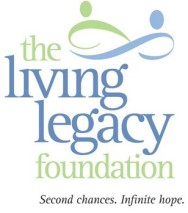The Myth of “Normal” Grief
Erin Gillard, Family Services Coordinator
The stories of the bereaved in the immediate aftermath of a loss have common threads. A frequent concern of those who are on this journey is to worry “Is this normal?” or “Am I going crazy?” when considering different thoughts or behaviors they are experiencing as a result of their grief. There is no set prescription for the proper way to grieve, and no set of activities that is the “right” way to move through this experience. Though you may have heard about the more traditional idea of grief moving in stages as defined by Elizabeth Kubler-Ross, such as denial, anger, bargaining, depression, and acceptance, the reality is grief is a fluid experience. It is more likely you will experience more than one feeling or stage at the same time and re-experience them as you move forward.
You may find your experience of grief moves between times when it feels more acute and intense and time when it is more subtle. The acute times may have random, unpredictable triggers, such as songs playing on the radio or seeing something in a store that reminds you of your loved one. You may think you hear your loved one’s voice or smell a scent that makes you feel like they are right around the corner. You may find yourself picking up the phone to call your loved one or looking for them in their favorite spot in your home.
Grief is a full body experience; it is also not unusual during the more acute times to feel fatigued with difficulty in sleeping and to have changes in appetite as well. Also, you may find episodes where you are having difficulty concentrating and feeling somewhat forgetful. There is a wide range of experiences that fall in the range of “normal” grief, and it is important to be accepting and noncritical of yourself during this process. You are entitled to all of your feelings and experiences.
The first year of grief is a time when we are just beginning to sit with the reality of our loss, and those acute feelings can arise with significant events and times of year such as changing of seasons, holidays, and birthdays. Just when a major wave of grief appears to have settled, it is not uncommon to find a new unexpected trigger. These larger waves of grief are very much part of the process, and though painful, allowing yourself to experience them as they come will help you over time.
The dance of grief has a different beat for each individual. It’s an evolving process and there are no wrong ways for you to experience or express this complicated emotion. Everyone wears grief differently. Accepting your experience will likely change every day, taking it as it comes, and being gentle with yourself throughout the process can be big tools in helping you cope.
There is a difference between grief and major depression; those with a predisposition to major depression may find it aggravated by a significant loss. Warning signs you may need additional assistance and support of the professional community include: constant thoughts of death or suicide; continuous thoughts of being hopeless or worthless; being unable to perform daily tasks; significant weight loss/gain; slower body responses/reactions; and disconnecting yourself from all social support. If you are experiencing any of these symptoms, please know The Living Legacy Foundation Family Service Coordinators are available to assist in connecting you with supportive services.
The Living Legacy Foundation offers on-going support for families of those who have donated organs and tissues, including donor family workshops and events to celebrate donors’ lives. The LLF’s Family Services team have diverse backgrounds and experience including social work, counseling and death and dying. The Living Legacy Foundation’s After Care Program includes bereavement literature, grief support counseling, assistance in locating support resources in your community, answering questions about donation, providing updates on recipients, assisting with donor family/recipient correspondence and providing information on how to get involved with our organization.
For more information, please contact familyservices@thellf.org
To join our mailing list, click here.





